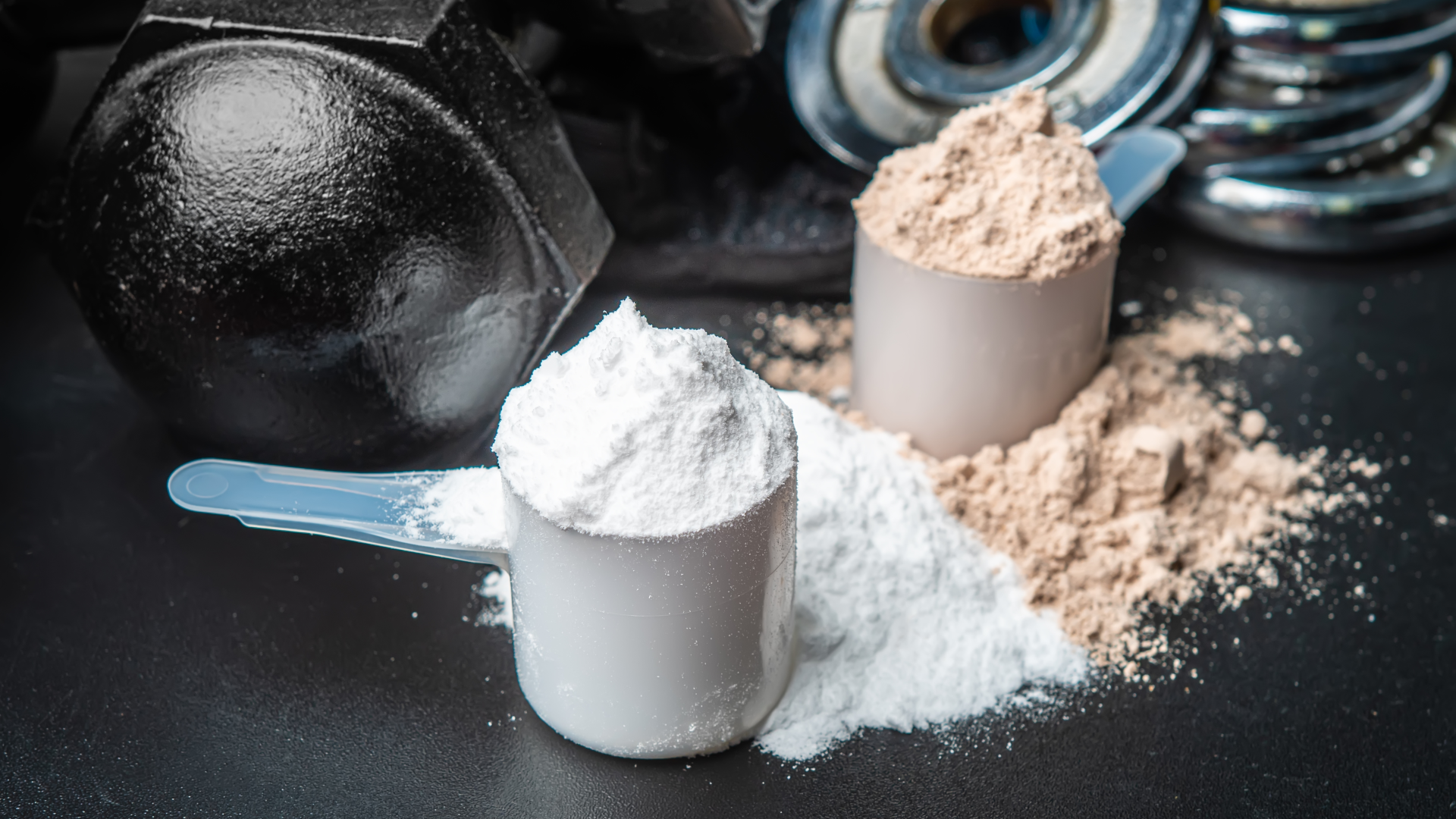Grab your cheat sheet |
A protein supplement is one of the easiest ways to increase your protein intake. While there are hundreds of options for protein supplements, the two overarching varieties are plant and animal proteins.
Deciding between these two is the first step, after which you can think further about which specific protein source works best for you.
So Plant Protein vs Animal Protein, which is better?
What is animal protein powder?
Animal protein comes from a variety of courses, including beef, cow's milk and egg. You can also get fish protein supplements, but these usually have a lower concentration, so we will focus on the other three types of animal protein supplements in this article.
Protein is extracted from the animal product, processed and turned into a powdered, highly concentrated protein supplement. The initial process creates a protein concentrate, usually around 80% protein.
Further processing can create protein isolate, which can be up to 95% protein but has a reduced number of other nutrients.
Animal protein sources
Whey protein powder is the most common type - this is a by-product of the cheese-making process. It is the highest quality form of protein powder and is the best for building muscle for the average person. Casein protein is also produced from milk, this is known as the nighttime protein as it’s usually taken before bed.

The other common animal protein sources are beef and egg white protein powder. You may opt for these over milk proteins if you have lactose intolerance and find it hard to digest whey protein powder.
Is animal protein vegetarian?
Animal proteins are never vegan, but whey, casein, and egg protein powder are suitable for vegetarians.
What is plant protein powder?
Like animal proteins, there are a variety of plant protein sources, such as nuts, grains, legumes, seeds, and beans. You can buy a single plant protein such as pea protein powder or soy protein powder, or you can purchase mixed plant protein powder.

All of the plant proteins are vegan and lactose-free. The only major allergen to watch out for is soya, likely a component of mixed plant protein powder.
The differences between animal and plant proteins
So now that we know where they both come from, which is best?
The nine essential amino acids
Proteins are made up of amino acids, of which there are around twenty different types used by our body. We can synthesize most of them, but there are nine that we must obtain from dietary protein, as our body cannot produce them. These are called essential amino acids.
All of the animal proteins contain all nine essential amino acids, meaning they are complete proteins. Mixed plant protein is also a complete protein, but some of the individual plant proteins, such as rice protein, don’t have all nine essential amino acids. This means they have to be supplemented with another form of protein.
Plant proteins have a lower concentration of the nine essential amino acids, including the three branched-chain amino acids. The leucine content is of particular importance as this is the amino acid that kickstarts muscle protein synthesis. This is one of the main reasons that animal proteins are viewed as having a higher protein quality compared with plant proteins.
Animal protein and plant protein digestion
The body's ability to digest a protein source is a key element in its efficacy. Everyone’s body is unique in this sense - some struggle to digest even the small percentage of lactose found in whey protein, and others will suffer an upset stomach after taking highly fibrous plant proteins.
Animal proteins are generally easier to digest (particularly egg and casein proteins), but it’s important to find a protein that works well for your body.
Digestibility and bioavailability of animal and plant proteins
Digestibility and Bioavailability refer to the process our body undergoes when trying to absorb the protein from the protein powder and use it for muscle growth and repair. You can drink the same volume of two different protein shakes, both containing 20 grams of protein, but your body may utilise the protein better.
Animal proteins have the edge over plant proteins when it comes to how well our bodies can absorb and use the protein. You can get the same muscle-building effects by using plant proteins, you might just have to take more of it compared with an animal protein supplement.
What is the price of plant proteins vs animal proteins?
Prices are more likely to vary from brand to brand than between animal protein powder and plant protein powder. The major thing that affects the price is the quality of the product (i.e., is it fairly pure or full of unnecessary filler ingredients) and whether it is the concentrate or isolate form, with isolate being more expensive.
As always, if the price seems too good to be true, it usually is!
Always check the label, product reviews and protein concentration in the powder you buy.
What do animal proteins and plant proteins taste like?
While it can be easy to focus on the nutrient value of a product simply, taste is important. If you don’t like the taste or texture, you won’t drink it! So choose a shake that you actually enjoy.
All protein powders come in a variety of flavours, such as vanilla, chocolate and salted caramel, but the base flavour does still influence the taste. Here is a quick guide to help you choose the best one:
| |
Plant or Animal. |
Taste |
Texture |
|
Whey protein |
Animal |
Creamy |
Smooth |
|
Beef protein |
Animal |
Beefy (needs to be masked by flavorings) |
May need to be blended with water |
|
Egg white protein |
Animal |
Minimal flavor, slightly eggy |
Smooth |
|
Rice protein |
Plant |
Minimal flavor |
Slightly Chalky |
|
Pea protein |
Plant |
Earthy |
Smooth |
|
Soy protein |
Plant |
Nutty |
Grainy |
|
Hemp protein |
Plant |
Earthy |
Grainy |
|
Mixed Plant protein |
Plant |
Earthy/Nutty |
Varies |
Comparing animal and plant protein powder
The table below gives an overview of the differences between animal and plant proteins, but this can vary from product to product.
|
Animal Protein |
Plant Protein |
|
|
Source |
Beef, milk, eggs |
Nuts, grains, legumes, seeds, and beans |
|
Complete Protein |
Yes |
Yes |
|
BCCAs Concentration |
Excellent |
Good |
|
Digestibility (how effectively we can absorb the protein) |
Excellent |
Average |
|
Lactose Free |
Sometimes |
Yes |
|
Vegetarian |
Sometimes |
Yes |
|
Vegan |
No |
Yes |
|
Gluten Free |
Check Specific Product |
Check Specific Product |
|
Contains Soy |
Usually no - check specific product |
Some do - check specific product |
|
Amount required to stimulate MPS |
20g |
30g or more |
|
Helpful for curbing cravings and weight loss |
Yes |
Yes |
Should you take animal or plant protein?
There are many reasons you may be swithering between animal and plant protein. You may be wondering which one your body will digest best, which one will taste better and considering the price etc. However, the most important factor is how effective the protein supplement is at helping you to build muscle.
Animal protein powders are more effective in every way when compared to plant protein powders. So if you want to get the most out of your hard-earned cash, stick to animal-based proteins.
We recommend whey protein powder, as it is easy to use when shaken with water, milk or as a baking ingredient.
Crazy Nutrition’s TRI-PROTEIN formula is a superior whey product that breaks down in 3 phases for more energy and strength than regular whey or plant protein formulas.


